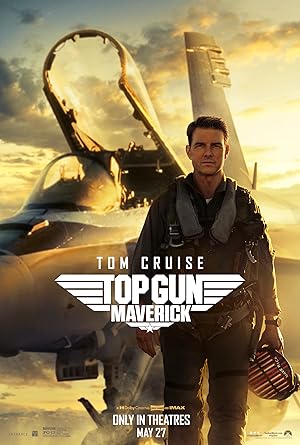
Scott Hardie: “It ruled.”
Loved it! Most audiences seem cold to it, but to me this is one of the best movies Marvel has ever produced, right up there with Winter Soldier. It's not as fun or entertaining as that or many other MCU titles -- this sequel is almost as humorless as its predecessor -- but it shows a real maturing of the brand, deftly able to handle complex personal and geopolitical themes while juggling some fairly complex world-building, once again with stunning production design and costumes and music. Marvel Studios has come such a long way since the simple smash-em-ups like The Incredible Hulk, to make a movie this complex and thought-provoking (and beautiful) while still being so emotionally striking.
One of its best tricks is making the race-swapping of Namor feel natural and unforced, not a product of "going woke" nor avoiding comparison to DC's Aquaman, but merely another way that this old Golden Age comics character could have existed, and an impressively imagined way at that. By making the character Mayan and a victim of colonialism, it allows for more perspectives and conversations about the practice than Wakandans could have had on their own, and it finds a new way to challenge the audience politically as well as the first film did.
At this movie's center, inevitably, is grief. One critic wrote about how each main character represents a different response to grief or a different stage in the processing of grief, which seems valid to me. If anything, the movie dwells too much on the loss of Chadwick Boseman when it could spend more time looking forward, but its tributes are touching. Also unnecessary are subplots involving armor upgrades and Ironheart and the CIA, which feel crammed in solely for later MCU stories; they're not bad, just inessential in a movie already full of great material.
− November 17, 2022 • more by Scott • log in or register to reply

Scott Hardie: My single favorite thing about the film, which really elevated it in my opinion, was Shuri's arc and its conclusion. She was a minor, mildly annoying tech-whiz-kid archetype in the first film, and here was forced to shoulder nearly the entire heroic arc by herself. That the filmmakers (including the impressive Letitia Wright) pulled off such character growth is amazing. But I also loved how the movie, through Shuri, ultimately chose forgiveness and acceptance and diplomacy in response to its conflicts, rather than the meaningless action of so many other comic-book movies. She had every right to rage, but when it mattered most, she chose to be bigger and make peace with an enemy whose attacks were deliberately personal. The movie hinted early that she had a gift for diplomacy, but that detail went so long without follow-up that I worried I was imagining any hope of Shuri choosing peace over war. I was immensely relieved when she finally did, and it's rare for Marvel movies to end with such a satisfying feeling.
That's why I was bummed to see Shuri decline to become queen. She progressed immensely, becoming a mature woman who was demonstrably ready for the throne, and I was excited to see a ceremony formally recognizing that she had completed the transition. I trust that the film ended that way to set up future MCU stories, because it sure felt like the wrong choice for the character in the moment.This reply contains spoilers. Reveal it. − November 17, 2022 • more by Scott

Scott Hardie: Minor quibble: Enough already with speed ramping in action scenes. I thought 300 pretty much exhausted that cliché 15 years ago, but it's still going. − November 17, 2022 • more by Scott

Scott Hardie: Following up about Shuri's arc: Many comic-book movies tell a similar "hero's origin" story. Besides the repetitiveness, the big problem is that we know the ending. We already have a good sense of what Batman and Captain America and Spider-Man are like as heroes, so the two hours of watching the ordinary person gradually become the hero feel anti-climactic and underwhelming.
Not so for Shuri, or at least not for me! I'm aware that she became Black Panther for a time in the comics and I expected that the movie might go there. However, between Marvel downplaying the importance of Black Panther and promoting this as an ensemble film, Letitia Wright getting a lot of negative publicity that might have led to a role reduction, the narrative means to become Black Panther getting torched by Killmonger, other characters (especially Queen Ramona) getting so much screen time early in the film, and Shuri going on an especially difficult and emotional journey for this kind of movie, I really didn't know where the film was going with Shuri, and I became more unsure as it went on.
When she fully became the hero in the finale, not just in costume but in spirit, having mastered her inner self as much as her new abilities, I was thrilled in the way that you're supposed to be thrilled by superhero story arcs! I was surprised and very satisfied. And this was on top of her very meaningful decision to offer Namor diplomacy instead of vengeance, the act that completed her maturation. I wanted to stand up in the theater and cheer! So this is what these movies are supposed to feel like! Just to be clear, I admired most of Wakanda Forever, not just the ending, but I'm talking about the ending to clarify what I was trying to get at earlier.
...And now that I look it up, I see that the trailer gives away that Shuri becomes Black Panther! Or at a minimum, it gives away that a woman becomes Black Panther, and there are few plausible options. This is precisely why I avoid trailers for movies I care about. I'm so glad that I avoided this one.This reply contains spoilers. Reveal it. − April 1, 2023 • more by Scott
Want to join the discussion? Log in or register to reply.
write your own review of Black Panther: Wakanda Forever
Other Movies from 2022





















